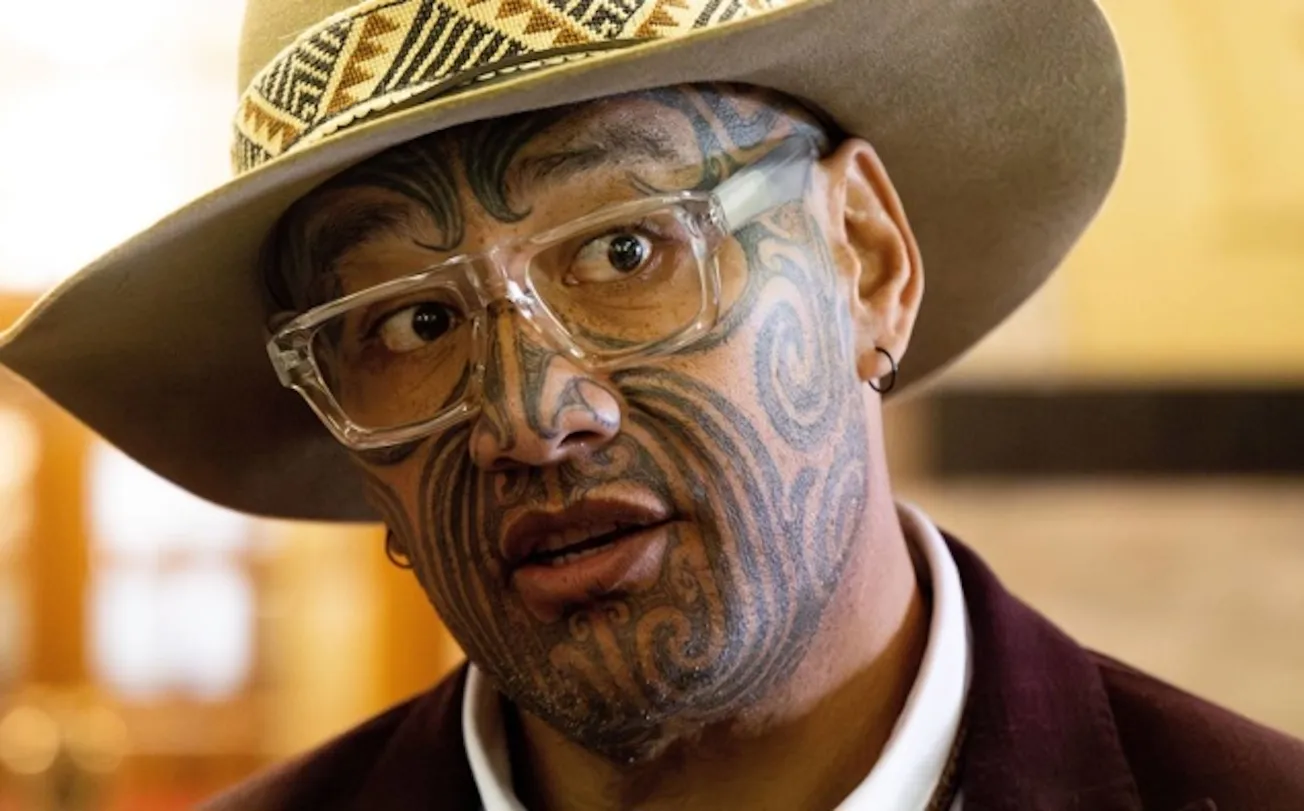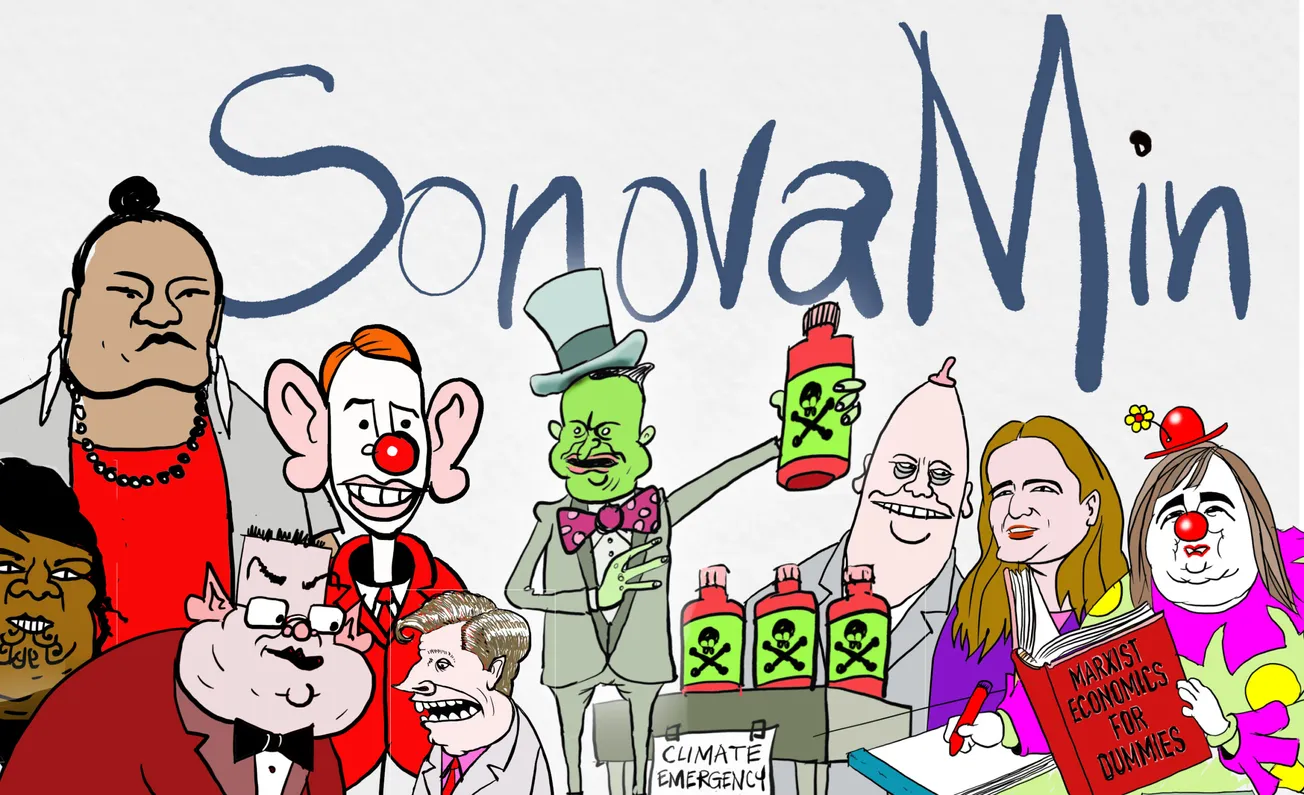Table of Contents
Barbara McKenzie
Barbara McKenzie has a PhD in in German Literature.
‘Vote for the political party which is going to completely abandon (not partly abandon) co-governance, scrap the Waitangi Tribunal, repeal the Treaty of Waitangi Act 1975, and all race-based legislation’.
Stop Co-governance booklet
New Zealand’s Labour/Green government has spent the last three years implementing He Puapua, a plan to convert New Zealand from a well-respected modern democracy to an ethnostate ruled over by tribal elites. The plan is disingenuously labelled co-governance, and the pretext is a bogus interpretation of the Treaty of Waitangi.
Those on the Taxpayers’ Union mailing list were startled to receive an email warning of the possibility of NZ First forming part of the next government, while openly preferring a National/ACT government. This is in complete conflict with its professed opposition to co-governance, evidenced in its Three Waters and Stop Central Committees campaigns.
Of all parties, NZ First has been the most uncompromising in its opposition to racial separatism and preference in any form, and to associated policies such as replacing the English language with Maori. At this year’s annual conference, NZ First voted to scrap the Waitangi Tribunal, supported by both Winston Peters and Deputy Leader Shane Jones. The National Party, on the other hand, has played a major role in paving the way for co-governance and is still ambiguous at best on the issue.
Casey Costello, who was until recently a spokesperson for the pro-democracy organisation Hobson’s Pledge and a board member (and former chair) of the Taxpayers’ Union, resigned from both positions to stand for NZ First, being ranked third on the party list.
The Road to Co-governance: National versus Winston
- In 2004 Winston Peters was responsible for the Labour/NZ First coalition government acting to ensure that the foreshore and seabed remained in public hands, in the face of Waitangi Tribunal claims. In 2011 this was overturned when John Key’s National government passed the Marine And Coastal Area Act 2011, which has seen claims of 600 thus far (costing the taxpayer $300,000 per claim).
- Winston Peters stopped Helen Clark signing up to the United Nations Declaration on the Rights of Indigenous Peoples (UNDRIP), subsequently signed by the John Key government in 2010. The Labour / NZ First coalition of 2017-2020 agreed that a report should be drafted to make recommendations on how this commitment should be met: there was no brief to propose co-governance. Minister for Maori Development Willy Jackson has admitted that He Puapua was deliberately kept from NZ First in the lead-up to the 2020 election.
- In 2015 John Key tried to put through reform of the RMA giving it a strong racial bias. However, it needed the support of the NZ First, who would only support it if the race-based clauses were removed. John Key refused and the reform failed, only to be tabled again under urgency by Labour this year.
- The response of the National Party to the publishing of the He Pua Pua report, which provided a blueprint for the implementation of iwi rule, was to amend its constitution to include ‘Recognition of the Treaty of Waitangi as the founding document of New Zealand’, now cited as its second value.
- Former Attorney-General and Minister for Treaty of Waitangi Negotiations Christopher Finlayson, still active in the National Party, is an ardent supporter of co-governance and is still promoting it.
- Whereas Winston Peters is determined that all racial bias be removed from NZ law books, National in general avoids the issue, however National leader Chris Luxon openly favours co-governance in terms of co-management of assets.
- 2023 Election: there is no mention of democracy or the co-governance issue in ‘National’s plan to get our country back on track’.
NZ ACT Party
The ACT party, a rival for the place of coalition partner, has been running a negative, highly personalised campaign against Winston Peters, with huge hoardings with Winston’s image and the words ‘Don’t get fooled again’; David Seymour consistently shows marked hostility to Winston at meetings. Current polls suggest that this tactic is rebounding against ACT, as their election campaign appears to have stalled, while NZ First support continues to grow: the latest Taxpayers’ Union – Curia Poll: October 2023 has ACT dropping by 5.2 points to 9.1% with NZ First on 6.9% (+3 points); for preferred prime minister Winston is on 4.3% to David Seymour’s 4%.
ACT is also campaigning against co-governance, though where NZ First wants to stop co-governance dead, ACT plans a referendum before any action is taken. ACT has yet to adopt NZ First’s policy of scrapping the Waitangi Tribunal (Julian Batchelor points out at Stop Co-Governance public meetings that only one party is prepared to scrap the Tribunal, which he sees as essential).
ACT does not appear to have policies on the language replacement programme, whereby the country and its places are renamed, government departments dot their texts with unfamiliar Maori terms, and TV announcers make their introductions in Maori. All this is part of a ruthless drive to replace English as the national language with Maori, in all probability presently spoken by no one in New Zealand as a mother tongue (see ACT’s Rebuilding Democracy).
In 2020 the Maori Party proposed that New Zealand be renamed Aotearoa. The responses of political leaders, according to the Herald, are telling:
Winston Peters criticised the move on several fronts; David Seymour said now was not the time to argue about a name change, ‘I don’t care if we call it Timbuktu right now’; the National Party declined to comment on the policy; Jacinda Ardern disingenuously ‘did not say whether she supported an official name change, but told media at today’s 1pm briefing she was seeing “Aotearoa” used more often’, implying that this was nothing to do with government policy.
NZ’s best chance to stop co-governance in all its forms is to have a NZ First government. More realistically, a strong presence of both NZ First and ACT will increase the chances of stopping the rot. There are those who will never vote ACT because of its association with Rogernomics and its right-wing economic policies; some will never vote NZ First. ACT and its supporters need to stop undermining its partner (however unwanted) in the campaign against co-governance and ethnic division, if they are really concerned about the future of our country.
See also:
Can you trust the woke Mr Luxon? (video)








